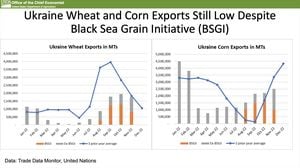Stephen Fry, the acclaimed British actor and writer, has issued stark warnings about the increasing trend of authoritarianism worldwide, characterizing it as a 'darkening shadow' reflective of fascism. During his recent appearance on the BBC program, Sunday with Laura Kuenssberg, Fry articulated his fears about what he termed the 'cult of power' arising from political figures who disdain democratic norms and values.
"I’m deeply worried by the darkening shadow spreading across the world—the shadow of what we have to call fascism," Fry lamented. His comments come at a time when political discourse globally seems increasingly emboldened by figures like Donald Trump and Vladimir Putin, both of whom he claims cultivate and demonstrate contempt for democratic leaders and institutions.
Fry elaborated on this phenomenon as he pointed out the troubling admiration these leaders show for autocratic regimes. He noted, "Sadly, the bullies have risen to the top. You have to look at who Donald Trump admires—it’s Vladimir Putin and it’s Russia." This sentiment resonates with many observers who are uneasy about the current political climate, where such 'bully-like behavior' is sanctioned and even rewarded within political ranks.
Adding another layer to his argument, Fry criticized the way power dynamics are shifting. He pointed out, "Power only speaks to power", highlighting the insular nature of these authoritarian leaders who negotiate primarily among themselves, dismissing the broader public interest. Fry’s indictment isn't solely aimed at Trump; he also referenced leaders like Saudi crown prince Mohammed bin Salman, Turkey's Recep Tayyip Erdoğan, and others known for their authoritarian tendencies.
During the discussion, Fry voiced his concern about the complacency surrounding the issues of authoritarianism, saying, "We have to realign ourselves... this is no longer the proper world." He referenced the surge of populism and nationalism as additional evidence of this worrying trend, signaling not just global but also localized threats to democracy.
One notable point made by Fry addresses the normalization of using fascistic rhetoric and actions by political leaders. He remarked, "Bullies feast on the fears they cause," illustrating how such leaders leverage societal anxieties to consolidate their grip on power. The implication here is clear: fears surrounding socioeconomic issues are often weaponized to divert attention from democratic failures.
The conversation showed the rising unease about figures who are pushing for extreme right policies, such as those associated with the far-right Alternative for Germany (AfD) party. Fry expressed concern over how political affiliations are shifting, as individuals like JD Vance encourage such nationalist sentiments and movements.
Fry’s comments aren’t just alarmist rhetoric; they resonate with broader social currents, exemplifying the growing discontent among citizens who feel increasingly marginalized from the decision-making processes. His insights suggest a call to action for society not to overlook small erosions of democratic principles, fearing these could pave the way for more extreme authoritarian practices.
These developments are particularly poignant as the world approaches anniversaries of events like Russia's invasion of Ukraine. The impact of such military aggression on global political discourse cannot be underestimated, with Fry highlighting how the interplay between right-wing populism and authoritarian rule remains potent.
Reflecting on the state of international politics, Fry remarked on the significant effect of leadership styles, especially concerning issues like peace negotiations, exemplified by Trump's controversial stances on Ukraine and his often dismissive rhetoric about world leaders. Fry stated, "What concerns me is the contempt Trump and Putin have for other politicians"—a statement reflecting on their apparent disregard for collaborative governance and multilateral diplomacy.
Fry’s eloquent remarks encapsulate the sentiments of many who fear for the future of democracies worldwide. The interplay of economics, leadership, and political rhetoric amid global tensions presents challenges not just for those affected but for future generations who might inherit a world shaped by these growing authoritarian narratives.
His call to be vigilant against these 'darkening shadows' is not merely cautionary but could pave the way for more grassroots movements aimed at reaffirming democratic values. Perhaps it's time for communities to come together and reassess not just the political stage but the fundamental values of democratic discourse.
To sum up, Fry’s insights serve as both a warning and a rallying cry. Echoing sentiments from various sectors of society, he urges individuals not to remain passive as authoritarianism creeps ominously closer, reinforcing the idea of active citizenship as fundamental to preserving democratic ideals.



